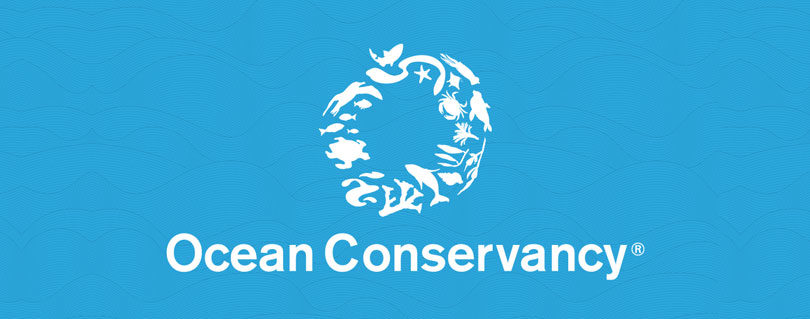Hard Lessons from a Disastrous Oil Spill
Published by Ocean Conservancy
Bob Spies is Senior Scientist and former President at Applied Marine Sciences, which he founded in 1990. He has served as Chief Science Advisor to governments on the Exxon Valdez Oil Spill Restoration Program, and Science Director at the Alaska SeaLife Center, which is dedicated to studying the causes of decline in North Pacific marine mammal and bird populations. He has studied marine pollution in Australia, the Marshall Islands, California, Washington, the Gulf of Mexico and Alaska.
Thirty years ago, the Exxon Valdez oil tanker ran aground in Prince William Sound, Alaska and spilled 11 million gallons of North Slope crude oil. This damaging spill was a big part of many people’s lives, and it was for me too, as I served as Chief Scientist for the Exxon Valdez Trustee Council for a good part of my later career. In February, I spoke at the 2019 Gulf of Mexico Oil Spill and Ecosystem Science Symposium in New Orleans about my experiences in Alaska and applying those lessons to restoration in the Gulf of Mexico where the BP oil disaster unfolded nine years ago this month.
What scientific lessons can we learn from the Exxon Valdez oil spill as we pivot from understanding the environmental impacts in the Gulf to supporting recovery?
Lesson #1: The recovery of some species might lag for unknown reasons.
The Exxon Valdez restoration process went through a transition 4-5 years after the 1989 spill. During this period the scientific program was all about damage assessment and tracking recovery of the many species and habitats injured by the spill. Assessing harm and tracking recovery are two sides of the same coin. Some species (such as bald eagles) were apparently recovering, but many others were not. Notably in the early ‘90s, there were weak runs of pink salmon returning to the spawning streams and hatcheries of Prince William Sound, the site of the 1989 spill. And in 1993, the Pacific Herring spawning population dropped from an estimated 120 metric tons to less than 30 metric tons and many of the fish had open lesions associated with a viral disease, viral hemorrhagic septicemia. Suddenly some really valuable fisheries were not recovering and apparently showing late-emerging damages.
Lesson #2: Ecosystem science provides answers critical to stakeholders and their livelihoods.
Following the Exxon Valdez oil spill, ominous developments in the marine ecosystem sparked genuine anxiety in the fishing community and the fishermen took direct collective action by blockading the Port of Valdez with their boats. Valdez is the southern terminus of the Trans-Alaska pipeline, and the blockade effectively cut off 20% of US domestic crude oil production. The disruption was short-lived, but it compelled the Exxon Valdez Trustee Council to take a much more comprehensive approach to post-spill marine research.
Lesson #3: Ecosystem science is a window into understanding recovery or lack of it.


With support and advocacy from scientists, the question that came to drive much of the scientific effort was: Why aren’t the resources recovering? The primacy of this question prompted deeper probing into the dynamics of the ecosystem in which the spill occurred and promised to return knowledge of great and lasting value. This is particularly true for harvested populations, as it would be a legacy to resource managers beyond knowing the impacts and recovery from the spill.
The scientific emphasis shifted as several integrated multidisciplinary studies were initiated. Their goals were to identify important dynamics in this complex ecosystem, including production, predation, disease and lingering oil toxicity.
Lesson #4: Multi-institutional ecosystem studies allow better coordination among scientists and return more comprehensive results.
To have the best chance of understanding controlling factors in recovery, institutions came together to form three large ecological studies: The Sound Ecosystem Assessment, The Apex Predator Experiment and the Nearshore Vertebrate Predator Experiment. Expertise previously scattered among Alaska Department of Fish and Game, the University of Alaska, United States Fish and Wildlife Service, the Prince William Sound Science Center, NOAA, United States Geological Survey and other entities was integrated to implement the studies. This integration had never been seen previously among the leading marine scientists from these agencies, institutions and private firms. This joining of separate institutions could be a legacy in itself.
Lesson #5: After a decade of zooming in on specific oil spill impacts in the Gulf, it is time to zoom out and study how broader ecosystem change will affect restoration.
Listening to talks and reviewing the many posters presented over the several days of the Gulf of Mexico symposium, I was struck by the sophistication, complexity and reductive nature of the individual studies that have been carried out in the Gulf over the span of the spill investigations. These have added greatly to our knowledge of the fate and effects of the BP oil disaster and to spills in general, especially deep-water blowouts. Now the time is right to seize the opportunity to step up intellectually and commit to higher levels of organization and coordination, to ask the questions: Are Gulf resources recovering as we expect or hope?; How does this ecosystem change and why?; How can we use new knowledge of ecosystem dynamics to adaptively manage restoration?
There are still billions of dollars available. Unlike most instances, money is not the limiting factor. The tangled web of our institutions, conflicting goals and political machinations appear to this outsider to be the limiting factors. Any group of individuals that could overcome these factors would be heroes in my eyes.
Take Action: Let’s work together to prevent another Exxon Valdez disaster by taking steps to make Arctic shipping safer.
Sign up for our emails!
The post Hard Lessons from a Disastrous Oil Spill appeared first on Ocean Conservancy.
Read the full article at: https://oceanconservancy.org/blog/2019/04/02/hard-lessons-disastrous-oil-spill/


